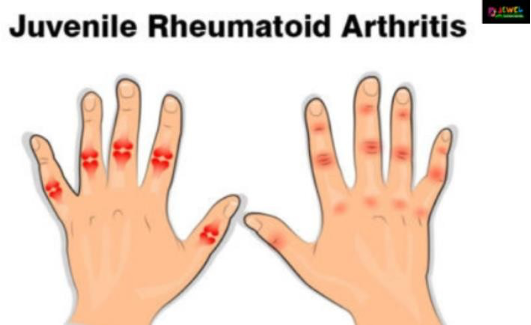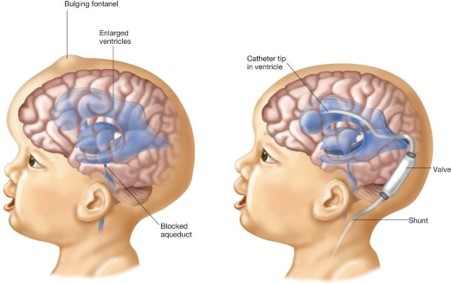During painful episodes of juvenile arthritis, a plan of care should include what nursing intervention?
A weight-control diet to decrease stress on the joints
Proper positioning of the affected joints to prevent musculoskeletal complications
High-resistance exercises to maintain muscular tone in the affected joints
Complete bed rest to decrease stress to joints
The Correct Answer is B
During painful episodes of juvenile arthritis, a plan of care should include proper positioning of the affected joints to prevent musculoskeletal complications. Proper positioning helps to alleviate pain, reduce inflammation, and minimize stress on the affected joints. It also promotes joint stability and prevents contractures or deformities that can occur due to prolonged immobility.
a weight-control diet to decrease stress on the joints in (option A) is incorrect because it, may be a consideration in managing overall joint health and reducing excessive strain on the joints. However, it is not the primary nursing intervention during painful episodes of juvenile arthritis.
high-resistance exercises to maintain muscular tone in the affected joints in (option C) is incorrect because it, may not be appropriate during painful episodes of juvenile arthritis. High-resistance exercises can potentially exacerbate pain and inflammation. Exercise should be tailored to the individual's condition and guided by healthcare professionals.
complete bed rest to decrease stress to joints in (option D) is incorrect because it, is not recommended as a nursing intervention for painful episodes of juvenile arthritis. Prolonged bed rest can lead to muscle weakness, joint stiffness, and functional decline. Instead, maintaining mobility and appropriate activity levels within the child's pain tolerance and capabilities is generally preferred.

Nursing Test Bank
Naxlex Comprehensive Predictor Exams
Related Questions
Correct Answer is D
Explanation
The first sign of pubertal change seen with boys is testicular enlargement. This is known as testicular or scrotal growth and is one of the earliest physical signs of puberty in boys. Testicular enlargement is followed by other changes such as the growth of pubic hair, penile growth, voice deepening, and facial hair growth.
voice deepening in (option A) is incorrect because it, typically occurs after testicular enlargement and is associated with the growth and development of the larynx during puberty.
scrotal enlargement in (option B) is incorrect because it, may occur simultaneously or shortly after testicular enlargement as part of overall genital growth during puberty.
, facial hair growth in (option C) is incorrect because it, is a later sign of pubertal development in boys and typically occurs after the initial testicular enlargement and growth of pubic hair.
Correct Answer is C
Explanation
Hydrocephalus refers to a condition characterized by an abnormal accumulation ofcerebrospinal fluid (CSF) within the ventricles of the brain. In infants, hydrocephalus cancause the head to enlarge rapidly as a result of the increased pressure exerted by theaccumulatingfluid.Thisisknownas"rapidheadgrowth."Theincreasedintracranialpressurecanlead to irritabilityand poorappetite in infants.
The distended scalp veins are another common sign of hydrocephalus. As the fluidaccumulates,itputs pressureon thebloodvessels inthe brain,causingtheveinsin thescalptobecome morevisible and distended.
Cerebral palsy in (option A) is incorrect because is a neurological disorder that affects bodymovementandmusclecoordination,butitdoesnottypicallypresentwithrapid headgrowthordistended scalp veins.
Syndrome of inappropriate antidiuretic hormone (SIADH) in (option B) is incorrect becauseitisacondition characterized byexcessivesecretionofantidiuretichormone,leadingtofluidimbalance, but it does not usually cause rapid head growth or distended scalp veins. Reye'ssyndrome (D) is a rare condition that primarily affects the liver and brain, and it does nottypicallypresent with rapid headgrowthor distended scalp veins.
Therefore, based on the signs described, hydrocephalus (C) is the most likely disorder in thiscase.Itisimportantto seekmedicalattentionpromptlyforaproperdiagnosisand appropriatemanagementofhydrocephalus in infants.

Whether you are a student looking to ace your exams or a practicing nurse seeking to enhance your expertise , our nursing education contents will empower you with the confidence and competence to make a difference in the lives of patients and become a respected leader in the healthcare field.
Visit Naxlex, invest in your future and unlock endless possibilities with our unparalleled nursing education contents today
Report Wrong Answer on the Current Question
Do you disagree with the answer? If yes, what is your expected answer? Explain.
Kindly be descriptive with the issue you are facing.
